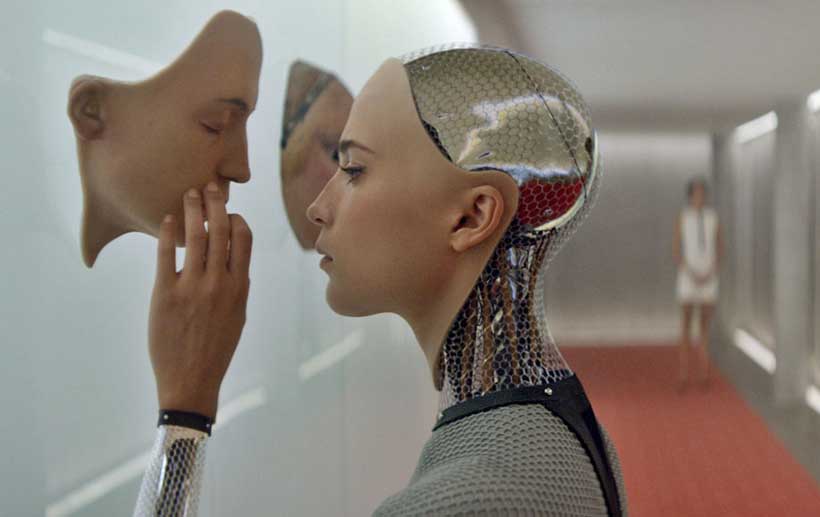December 14, 2021
We Are All Cyborgs Now
I recently interviewed Tasmanian pastor, and business consultant, Daniel Sih about his award winning book, Spacemakers: How to Unplug, Unwind and think clearly in the Digital Age. Today he guest-posts about an issue we have all been grappling with, how we are shaped by technology…
It was just another church service. An elderly man stood up to lead communion. He had faithfully attended church for forty years and by his calculation, had taken the sacrament more than two thousand times. “Communion is a powerful ritual” he explained, “think about how significant this ritual has been in forming my head, heart and habits.” It was a good point. Two thousand cups. Two thousand pieces of bread. Over a lifetime, this ritual must have deeply impacted his world view.
At the same time, during the same talk, I couldn’t help but notice a young boy next to me (at a COVID-safe distance of course) swiping his iPad. He was about seven years old and engrossed in a game of Angry Birds. Rather than paying attention to the speaker, the boy was annihilating an army of grunting green pigs.
I admit I found this somewhat distracting. I should have been focusing on the Lord’s Supper, but was mesmerised by the boy and his game. It felt like two worlds colliding; an old and young man shaped by old and new habits. The former had taken forty years to experience communion two thousand times. It would take just four days for the latter to swipe his screen two thousand times.
As we ate and drank communion that morning, a thought crossed my mind, “If a shared table can transform one’s head, heart and habits, I wonder what the impact of swiping a screen might be on our individual and collective spiritual formation?”
The Reality of Digital Liturgy
Rod Dreher in The Benedict Option, argues that digital technology has become a cultural liturgy that transforms our being; “Technology is a kind of liturgy that teaches us to frame our experiences in the world in certain ways and that, if we aren’t careful, profoundly distorts our relationship to God, to other people, and to the material world — and even our self-understanding.”
In other words, technology is embedded with ideas (“we become what we behold”) and even grunting green pigs have a way of shaping our loves and longing over time. If unexamined, our digital habits can profoundly shape the way we understand the world around us, and indeed, the nature of God.
Research suggests that there is a profound connection between what we do, and who we become. Our choices are rarely neutral. Repetitive actions and behaviours invariably impact the way we think and feel, creating a feedback loop reinforcing those behaviours. More so, our repetitive actions are identity forming.
As argued by habit author James Clear; “Every action is a vote for the person we wish to become.” Our lives are formed by liturgy, one way or another. Habitually, the actions we undertake with our bodies, and screens, shape the story of our souls.Here’s where we need to seriously consider, as apprentices of Jesus, our digital behaviours and the impact they have on our thought life, emotional life, and our sense of identity.
When we enable our children to play Angry Birds rather than sit in boredom during communion, it frames their worldview in a particular way. When we reach for our phone first thing in the morning, scanning the news, email, or Instagram, it impacts our mindset for the rest of the day. Such habits form neurological patterns that in turn, impact our identity.
For those who are serious about being formed in the ways of Jesus, it is worth examining our digital habits and the extent by which our lives become integrated and mediated by machines.
We are all Cyborgs now
The ever quotable Elon Musk has suggested “we are all cyborgs now.” I think he’s right and it’s not necessarily a bad thing. We rely on digital media for almost everything – to check the weather, buy food, track fitness, find a partner, make money. Most of us even check our phones on the loo. We are not just human. We are cybernetically modified beings.
There are plus sides to being a cyborg – half man, half machine. We can work from home, crunch complex data, and automate otherwise mundane activities. We can talk with family overseas, design cities remotely, and create funny meme’s that go viral. But like all good things there are downsides to such an integrated existence. This was certainly true for Darth Vader. It is also true for us. The more we trade our humanity for a super-humanity mediated by the online world, the more something tends to give – and that something is the soul.
As helpful as the digital world can be, I’m not sure that being a cyborg is particularly good for deepening one’s relationship with Jesus. Sure, you can tick off a daily bible verse and use dopamine reinforcement in a positive way. But there are significant downsides to living like the Terminator when it comes to faith and Christ-like spiritual formation.
Digitally-mediated people, by design, find it harder to be human. They find it harder to be peaceful and still. Silence and solitude is a challenge. It is a struggle to practice the presence of God (since silence has a way of interrupting our notifications.) Cyborgs also struggle with other aspects of spiritual formation.
They find it harder to concentrate on scripture. They struggle to pay attention to the still-small voice. They lose their capacity to examine the inner life. Prayer is also a challenge for the cyborg because the results of prayer are rarely instantaneous. And this has implications. It’s almost as if the practices of Jesus require us to rethink our cybernetic tendencies and form an alternative liturgy – one that leads to a deeper faith, a rested soul, and a well-rounded humanity.
Make The Choice To Unplug And Unwind
None of this suggests that we should avoid digital living altogether, but it is worth re-learning how to unplug from our devices as a habit.
As cyborgs, the way forward is not to add more machine, but re-humanise. We live in unprecedented times where time online is becoming our default condition and time offline a novelty. In fact, the average Australian now spends more time online than they do eating, travelling, exercising and hanging out with their children combined. 2000 communions vs a lifetime of screen. Hard to match up!
But there’s some good news. Even Darth Vader and the Terminator rediscovered their softer sides, eventually. And there are simple ways to unwind our own cybernetic tendencies.
To start, we can examine the digital liturgies that shape our lives, assessing their impact on our head, heart and habits. This may involve a digital audit – writing down what you do for a week to pay attention to how you use your time.
The next step is to build better habits.
Can you swap one unintentional digital habit for something life-giving? Like charging your phone outside of your bedroom, to begin each day with ten minutes of silence, prayer and reflection (rather than worrying about the newest strain of COVID-19). Or finish the evening by writing a thankfulness journal, reading an ‘old-fashioned’ paperback, or having pillow-talk with the person next to you in bed?
There are so many creative ways to unplug and unwind, trading unhelpful digital liturgies for healthier non-digital ones. Pull out a musical instrument. Get in the garden. Sit under a tree and do nothing. You know … practice being human again.
I get it. Technology is great and it’s fun being a cyborg. You’re reading this post on a screen right now. But let’s not lose our humanity in the process of enjoying the digital age. It’s still possible to share communion in church without a device in our hands. And sometimes it’s worth leaving Angry Birds at home.
How are your digital habits and behaviours shaping your personhood? Is the liturgy of your life leading you towards or away from Christ-likeness? And what might you need to do about it?
Daniel Sih is the award-winning author of “Spacemaker: how to unplug, unwind and think clearly in the digital age.” He is the winner of this year’s Australian Business Book of the Year Award (Best Personal Development Book) and a finalist for Best Technology Book and Best Cover Design 2021. Daniel works a pastor in Tasmania, and a productivity consultant globally. He is also a cyborg. You can read free chapters from his book at www.spacemakers.com.au
Written by
There is no guarantee that Jesus will return in our desired timeframe. Yet we have no reason to be anxious, because even if the timeframe is not guaranteed, the outcome is! We don’t have to waste energy being anxious; we can put it to better use.
Stephen McAlpine – futureproof
Stay in the know
Receive content updates, new blog articles and upcoming events all to your inbox.




